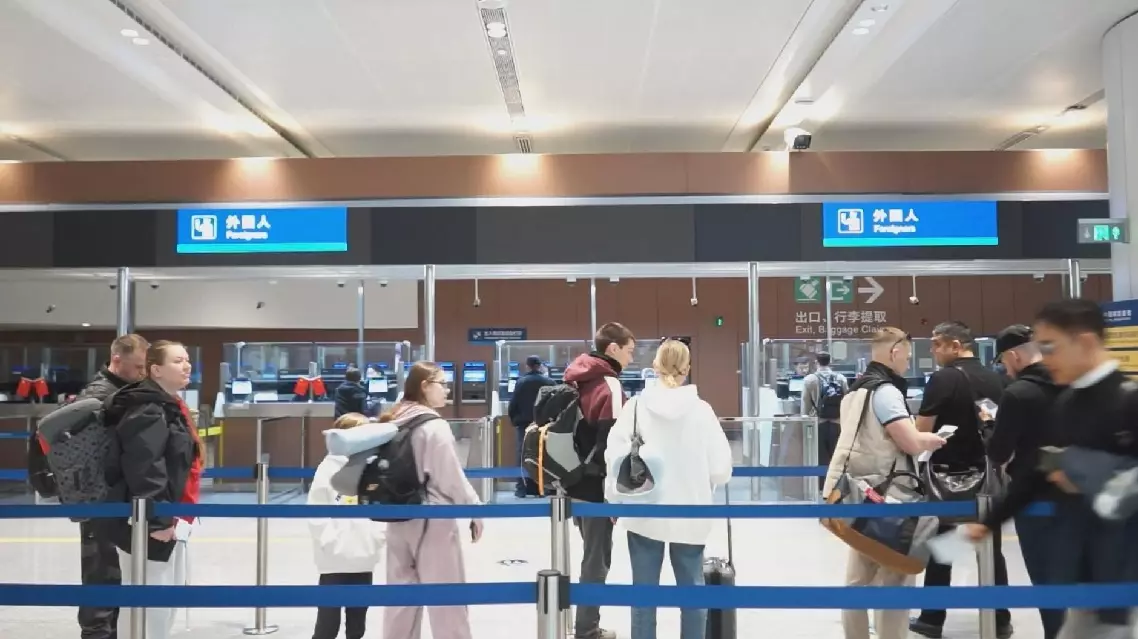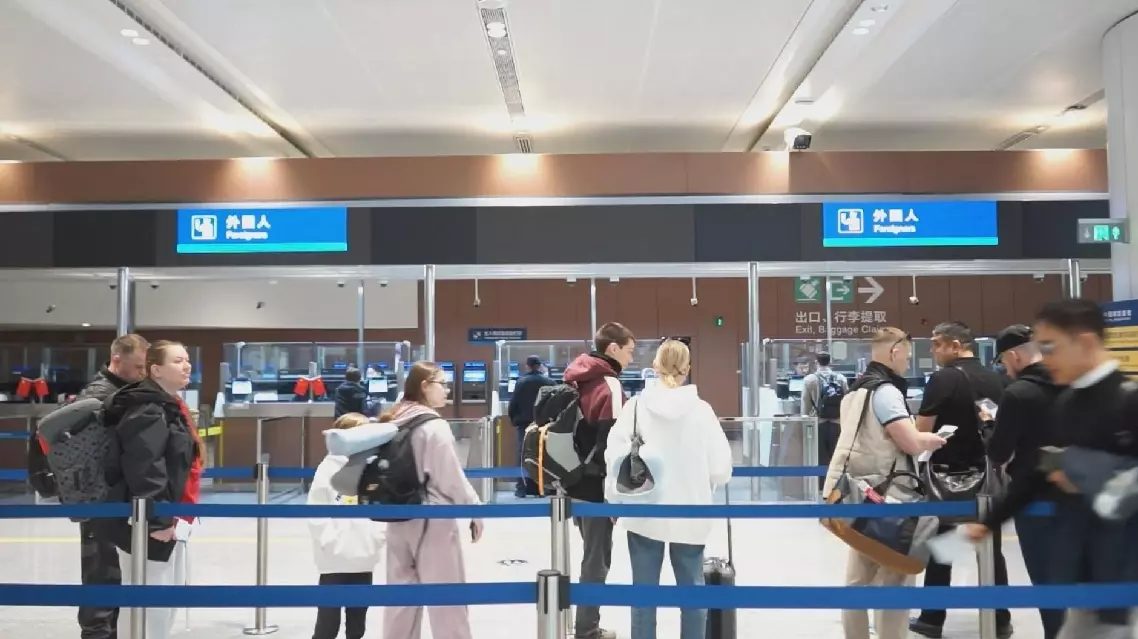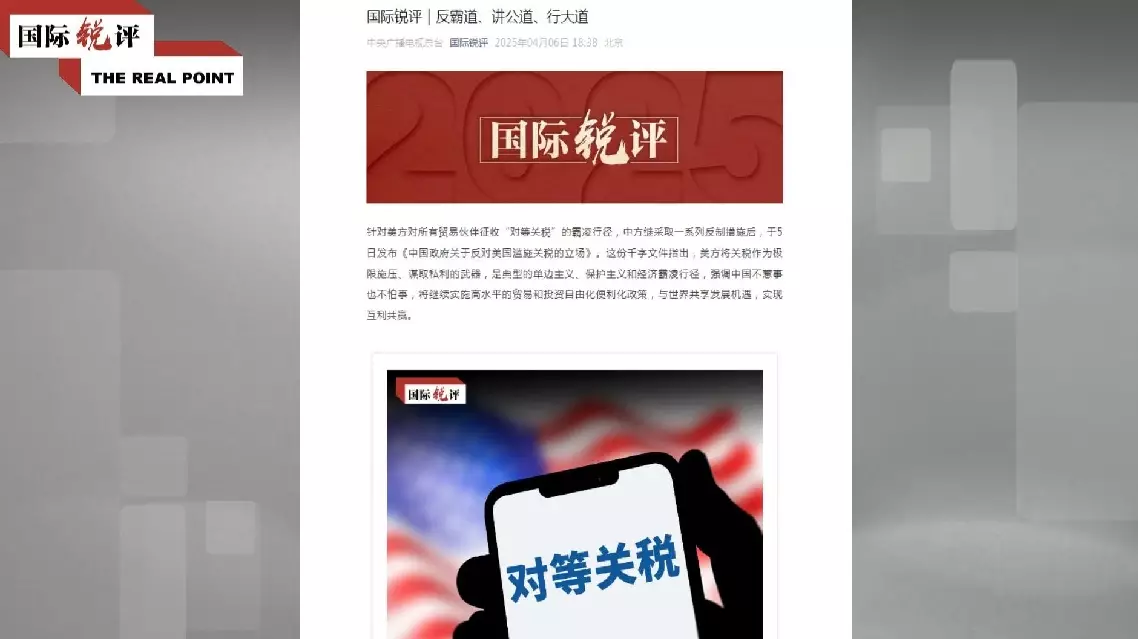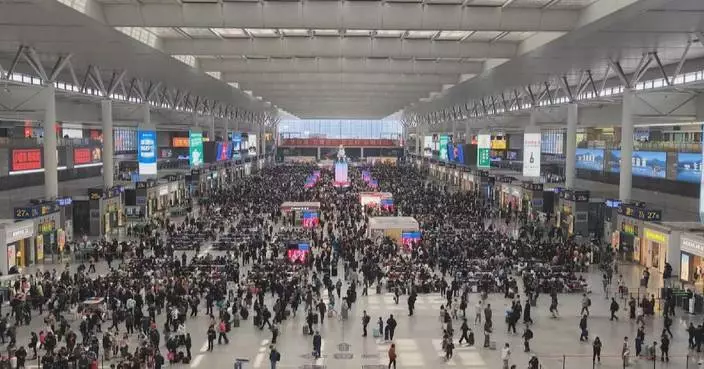Passenger entries and exits through Beijing's ports in the first quarter of 2025 surpassed 4.7 million, marking a 23 percent year-on-year increase, data from the the Beijing General Station of Exit and Entry Frontier Inspection showed.
The release also indicated that the the inbound and outbound trips made by foreign passengers rised 44 percent to over 1.1 million.
"As of March 31, the Beijing General Station of Exit and Entry Frontier Inspection had processed 584,000 foreign arrivals, including over 260,000 visa-free entries, accounting for 45 percent of the total. This represents a 140 percent year-on-year increase," said Li Hao from the Beijing General Station of Exit and Entry Frontier Inspection.
According to Li, as of March 31, the Beijing General Station of Exit and Entry Frontier Inspection had handled around 18,000 temporary entry permit applications for eligible foreign travelers. The foreign travelers entering Beijing ports were mainly for tourism, business, and family visits.
In December, 2024, China's National Immigration Administration (NIA) announced to extend the permitted stay for eligible foreign travelers from the initial 72 hours and subsequent 144 hours to 240 hours (10 days).
Under the updated policy, eligible citizens from 54 countries, including Russia, Brazil, Britain, the United States and Canada, can enter China visa-free when transiting to a third country or region.
"This is our third time [in China]. We want to go outside. We want to go to Beijing. I hope that today we will see a lot of cultural places," said a Russian tourist traveling with his family.
In addition, Beijing is also bracing for a surge in cross-border travel as the summer and autumn peak travel seasons approach.
To deal with the rising demand, international flight routes in the city's airports have been further expanded, with the number of daily inbound and outbound flights reaching about 350.
At Beijing Capital International Airport, the number of international destinations is expected to increase to 86, with flight routes linking Beijing to Prague in the Czech Republic, Edinburgh in Scotland, Boston in the United States, Malé in the Maldives, and Tijuana in Mexico scheduled to be launched.
Meanwhile, Beijing Daxing International Airport is expected to expand its international destinations to 36, with new routes to Ho Chi Minh City in Vietnam and Bandar Seri Begawan in Brunei planned to be launched.
"Summer and autumn are traditionally peak seasons for the cross-border travel of passengers. It is expected Daxing Airport will see daily inbound and outbound passenger trips increase by 30 percent during the peak seasons. In terms of international flights, six new international and regional routes will be added," said Li Siyu, an official working at the border inspection station of the airport.
It is expected that the daily average of inbound and outbound flights of the airport will reach nearly 100, marking an 11 percent increase compared to the same period last year, according to Li.

Beijing ports see rising inbound, outbound trips by foreigners

Beijing ports see rising inbound, outbound trips by foreigners
China will firmly fight against economic hegemony, advocate justice, and stick to the right path against the sweeping tariffs by the United States, and will open ever wider to the world no matter how the international situation changes, according to a commentary of The Real Point published on Sunday.
An edited English version of the commentary is as follows:
In response to the U.S. imposition of "reciprocal tariffs" on all trading partners, China issued the Chinese Governments Position on Opposing U.S. Abuse of Tariffs on Saturday, after taking a series of countermeasures.
The thousand-word document pointed out that the United States uses tariffs as a weapon to exert extreme pressure and pursue its own selfish interests, which is a typical act of unilateralism, protectionism and economic bullying.
The paper also emphasized that China does not provoke trouble but is not afraid of trouble, and will continue to implement a high-level trade and investment liberalization and facilitation policy to share development opportunities and achieve mutual benefit and win-win results with countries around the world.
Li Haidong, a professor at China Foreign Affairs University, told The Real Point that this position paper demonstrates China's high sense of responsibility to uphold fairness and justice without fear of power politics, which will be conducive to the efforts of the international community to pool together resultant forces and continue promoting economic globalization.
Meanwhile, China's determination to promote high-level opening-up has boosted the courage and confidence of other countries to fight against unilateral bullying and injected certainty into a changing and turbulent world, according to Li.
There are no winners in a trade war and there is no way out for protectionism. When the U.S. complains that the whole world is taking advantage of it, it deliberately distorts a fact that the U.S. is the biggest beneficiary of the world's free trade system since the end of World War II.
Since the establishment of diplomatic relations with China in 1979, the United States has long been reaping substantial profits from its economic and trade ties with the country. More than 70,000 American companies have invested and started businesses in China, and exports to China supported 930,000 jobs in the United States, which maintained a huge surplus in service trade in particular.
According to data from the U.S. Bureau of Economic Analysis, in 2023, the United States exported 46.72 billion U.S. dollars in services to China, and had a trade surplus of 26.57 billion U.S. dollars in services with China.
The Economist criticized the current U.S. trade policy for ignoring the unprecedented prosperity that globalization has brought to the United States.
The U.S. arbitrarily uses tariffs to blackmail other countries at will, attempting to sacrifice the interests of the whole world for U.S. hegemony. But any exertion of pressure and intimidation are useless to China.
This year, in the face of the continuous tariffs imposed by the United States, China has introduced a series of precise and effective measures, as one of the first countries taking countermeasures. The country's move is not only to safeguard its own sovereignty, security and development interests, but also to defend the multilateral trading system and international trade rules.
The world is not a jungle society, and everything must be fair and just. Development is a universal right of all countries in the world, not an exclusive right of a few countries.
The United States has unilaterally imposed tariffs on all its trading partners, violating the WTO's Most-Favored-Nation treatment principle and attempting to subvert the existing international economic and trade order. Its nature is to pursue "America first" and "America special" and deprive other countries of their legitimate right to development.
Over the past days, the European Union, France, the United Kingdom, Italy, Japan, Australia, Singapore, South Africa, Canada and other countries have been criticizing the United States.
China's position paper clearly states that "international affairs should be addressed through consultation, and the future of the world should be decided by all countries", reflecting the common aspirations of the international community and China's consistent position of speaking and doing fair things.
While the United States continues to build "high walls around a small yard" and erect tariff barriers, China is constantly "opening its doors" and "building bridges and roads" to bring more opportunities to the world.
On March 28, Chinese President Xi Jinping met with representatives of the international business community in Beijing and reiterated that China is determined to promote reform and opening up, China's door will only open wider, and China's policy of welcoming foreign investment has not changed and will not change.
The China Development Forum 2025, held in Beijing from March 23 to 24, attracted more than 80 representatives of multinational companies, among which American companies made up the largest proportion, reaching about one-third.
A report released by global management consulting firm Kearney shows that in the ranking of foreign direct investment confidence in the next three years, China has jumped from 7th to 3rd, and ranked first in the special ranking of emerging markets.
At a time when the world is in turmoil and the United States is abusively imposing tariffs, China's position paper sends a strong message to the world about maintaining the multilateral trading system and promoting economic globalization.
The world wants justice, not hegemony. This is China's clear declaration and the common voice of the international community.

China opposes hegemony, upholds right path against sweeping U.S. tariffs: commentary
















































